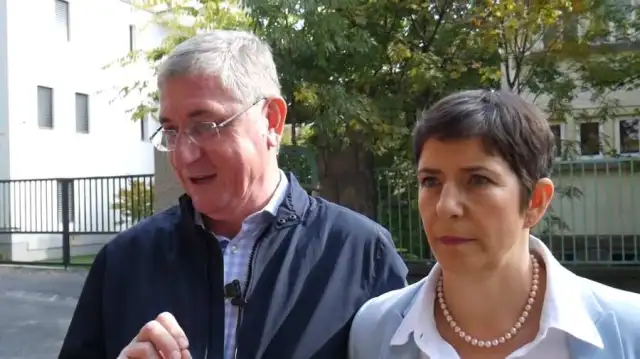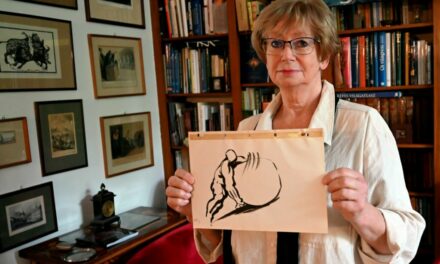November 7 was a public holiday in Hungary for thirty-eight years, celebrating the victory of the "Great October Socialist Revolution" (NOFSZ). We now also know that most things did not happen the way they were taught for decades. In fact, a historical adventurer named Vladimir Ilyich Ulyanov - movement name Lenin - with a few companions and a lot of cash he got from the Germans, who knows where, overthrew the ailing Russian Provisional Government, executed the Tsarist family and introduced total state terrorism. Communism still haunts us today in countless forms!
In 1988, this day was the last officially "red letter" public holiday and non-working day in Hungary. While this year, Népszabadság published an article about the loyalty of the "supporters of socialism with a Marxist interpretation", in 1989, the "year of miracles", the newspaper published an editorial about another revolution, the one million people protesting in Berlin, and not a red headline. In one year, the world turned around, and the desire for freedom of the peoples of Central Europe made way.
For decades, on November 7, the country celebrated the 1917 Bolshevik takeover, officially known as the Great October Socialist Revolution. On November 7, 1917, in Russia, on October 25 according to the Julian calendar used at the time, the "revolutionary" series of events took place, the Bolsheviks overthrew the provisional government. As a result of the takeover, the first Soviet government, the Council of People's Commissars, was established, which made revolutionary provisions. It is now certain that nothing happened as it was taught for decades. Not only did the cannons of the Aurora cruiser not fire in 1917, but the Winter Palace was not besieged either.
November 7 was declared a holiday in Hungary in 1950, and it was last a public holiday in 1988. In 1950, a section of the Nagykörút took Lenin's name, and the holiday date on Oktog. In 1956, János Kádár arrived in Pest with a Soviet tank on November 7, and one of his first decrees was to designate the day of the Soviet Revolution as a working day, while the Red Army was besieging Sztálinváros.
On the 7th of November, the working class of Russia, in alliance with the working peasantry and the oppressed peoples, under the leadership of the glorious Bolshevik Party of Lenin and Stalin, overthrew capitalism and created the world's first socialist state on one sixth of the globe: the Soviet Union," states the 1950 decree, in which the seventh of November was declared a public holiday and non-working day in Hungary as well. Of course, this was also adopted by the Kádár government: the trio characterized by Kádár-Apró-Dögei, whose middle member's granddaughter, Klára Dobrev, now leads a shadow government in Hungary.

The great offspring. Antal Apró's grandson and her husband. Ferenc Gyurcsány, Klára Dobrev/Source: NIF
The November 5, 1988 issue of Népszabadság commemorated the day of the "revolution" in a front-page editorial. The author wrote about the seventh of November: "The revolution is not a holiday. But when we do celebrate, we remember and make a vow at the same time: we want to be worthy here, in Hungary as well, they want to be worthy in the Soviet Union as well, and the supporters of socialism in the Marxist interpretation everywhere in the world want to be faithful to the great goals of the October Revolution, which are still being realized".
The year 1989 entered the public consciousness as the year of miracles (annus mirabilis), and this is how we remember it today. The name refers to the unexpected speed and developments of the year's political events in Central and Eastern Europe. It is a sight of the rapidly changing history that in 1989 Népszabadság only wrote about the great October socialist revolution on page 6, people went to work and there was no big state celebration, only sporadic and uninteresting wreath-laying on November 7.
And Népszabadság wrote about the million-strong crowd protesting in front of the Wall in Berlin, which was broken up by the German people with their own hands two days later.
November 7 was not only a symbolic holiday of the communist dictatorships, but also important turning points in the years of system change. After several days of demonstrations in the GDR, the communist government led by Willi Stoph finally resigned on November 7, 1989.
The first freely elected parliament in Hungary was already in session - Gorbachev was assassinated at a very modest ceremony in Moscow. According to his own admission, the locksmith from Leningrad, who committed an unsuccessful murder attempt with a shotgun with a sawed-off barrel, wanted to take revenge on Gorbachev for 1917. We are talking about a lonely, disgruntled perpetrator who, according to contemporary reports, was not even noticed by the Secretary General. Not like the changes that took place in Central Europe in one year, in the framework of which the people living in the region won their freedom and independence.
Source: Nullahategy.hu
Featured Image: Wikipedia












